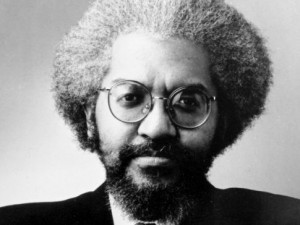(ThyBlackMan.com) This week was supposed to be a landmark occasion in the evolution of contemporary African American thought. A new release on the life and death of an American success and race tragedy, published by Viking (Penguin Group) and written by author, columnist, scholar Manning Marable, called Malcolm X: Life of Reinvention, sought to refine and re-clarify the life of most of the most polarizing figures of the 20th Century, El Malik Shabazz – forever to be known as simply Malcolm X.
I got my copy first thing Monday and am halfway through this 500 page, highly researched, thoroughly annotated and citation riddled book. This book, for sure, is going to be one of the most provocative and controversial writings of a 20th century freedom movement figure ever written.
Even more provocative and controversial than Ralph Abernathy’s And The Walls Came Tumbling Down and it’s revelations of the sexual escapades of Martin Luther King, Jr. and his inner circle, Manning delved into areas that  sought to challenge the dominant radical black manhood figure of the last century.
sought to challenge the dominant radical black manhood figure of the last century.
New revelations of Malcolm’s assassination, challenges to some of Malcolm’s account of his own life and the most controversial allegation of Malcolm’s possible experimentation with homosexuality will be points of intense public debate-at best, at worse, a hostile reaction.
This book tour most certainly would have given an insight to the author’s ten years of intense research, observations, rationalizations and motivations around these new revelations. His firsthand account would be most central in challenging our long held ideas about Malcolm and the events that defined (and ended) his life.
But all that’s not to be. On the eve of the release of what certainly will be considered his most defining work, Manning Marable died of complications from pneumonia at the age of 60. Certainly a tragic occasion for such a brilliant brother on the eve of his most provocative work. Marable’s writings were provocative in life. This last writing represents an appropriate post-mortem discussion that is consistent with his rich scholarship and full writing career.
I first began reading Manning as a fellow columnist in the 1990s. Whatever his column ran, somewhere in the country it was next to mine as syndicated columnists with the NNPA. The first book of his I read, How Capitalism Underdeveloped Black America (1983) was a provocative expose’ on how economic subjugation in America works and how the absence of capital in black communities suppressed the development of our communities. His book, Black Leadership (1998) looked at the black leadership strata in America, and rationalized the need for them all to exist. His weekly columns were a running commentary on the complexities of the black diaspora and the realities of America’s racial construct. He wasn’t writing the mundane things other columnists were writing. His writings were deeper, more intellectually combative where you wrestled with yourself to grasp his point of view and, many times, came upon revelations that you hadn’t bothered to see.
This Malcolm book is going to cause many to wrestle with what they thought they knew about Malcolm and what they will refuse to believe about Malcolm. Still, it will be an intellectual confrontation as only Manning Marable (and a few others) came wage. The deep end of the pool is reserved for good swimmers. The deep end of the intellectual pool is reserved for good (deep) thinkers. The fact that it took him ten years to write the Malcolm book was a demonstration of his willingness to work through, and try to resolve, the intellectual conflicts that surrounded any discussions around the life of Malcolm X and touch the third rail, often taboo but whispered topics that gave rise to these conflicts. Provocative thought gives rise to provocative resolution. Anything worth studying is worth discussing—even debating. A black President was once a provocative intellectual engagement for many of us, but Barack Obama’s presidency still represents a resolution of a once very provocative debate. You just have to be willing to “go there” intellectually. Manning Marable wasn’t afraid to “go there.”
The debate around Malcolm X: A Life of Reinvention is going to be a provocative, intense debate that challenges our previously held (read: Alex Haley) thoughts. The shame of it all is the man that caused us to “go there” won’t be there to frame the conversation. A fitting tribute to the ultimate “radical” race intellectual.
Professor Manning Marable, and his provocative scholarship, will be sorely missed. We’ve lost a true radical thinker and articulator of the African American experience in America.
Written By Anthony Asadullah Samad
Official website; http://www.AnthonySamad.com

















Leave a Reply